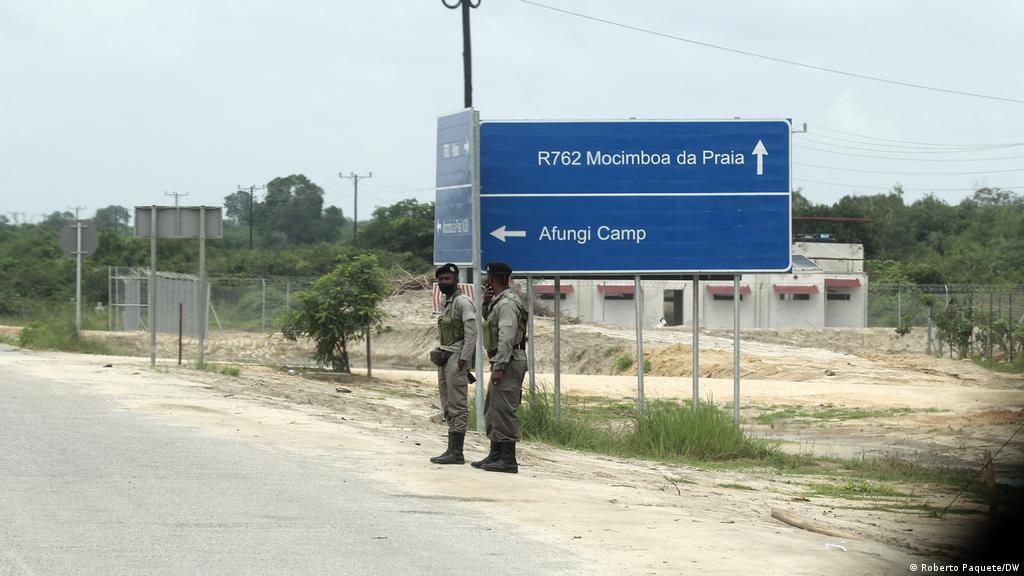Africa-Press – Mozambique. A memorandum of understanding signed by a consortium of companies with gas operations in Mozambique’s Cabo Delgado province and the country’s government provides for a bonus for military personnel guarding these projects, provided that they do not violate anyone’s human rights, according to a report just released.
“Inherited from ANADARKO and amended in 2020, Mozambique LNG (or rather TotalEnergies as operator on behalf of the Mozambique LNG consortium, signatory of the document with ENI as operator on behalf of the second consortium) concluded an MOU with the Mozambican government. This memorandum provides for the stationing at the Afungi site and its surrounding area of a security force consisting of elements of the FADM called JTF[Joint Task Force]. These troops currently comprise about 600 men and 10% is composed of “fusilleros” (elite troops modelled on the U.S. Marine);” reads the humanitarian report on Cabo Delgado, in northern Mozambique, commissioned by the consortium and released on Tuesday on the website of TotalEnergies.
“The MOU includes support for the JTF’s accommodation as well as a commitment to provide food and equipment,” reads the report. ” In addition to this, an individual bonus will be paid, depending on the grades, and upon the condition that: any violation of human rights attributed to elements of the JTF will entail the withdrawal of this bonus”.
The document states that the memorandum of understanding between the companies and the Mozambique Armed and Defence Forces (FADM), which provides for this mechanism and other support for the military, should be revised and that “any direct link between the consortium and the Mozambican army should be cut off.”
Christophe Rufin and Ingrid Glowacki, the consultants who authored the report, recapitulate the rationale for the bonus and other support through the memorandum: This contribution to the maintenance of Mozambican army detachments in the area could have originally been motivated by the fact that no foreign force was operating in these regions”.
“Poorly equipped, unprotected and without supply, the Mozambican army troops were at the time vulnerable. Their low pay could encourage abuses against the civilian population. The mechanism of a bonus was aimed at reducing this risk and providing an immediate sanction in case of non-compliance..”
The relationship between the companies in the LNG project and the military began with the latter’s pioneering work with Anadarko, which later sold its business to Total; the memorandum with Mozambique’s Ministry of Defence was revised in 2020.
Mozambique troops in the area now include 600 men, 10% of whom are marines, but the scenario has changed, as the report notes: the military now has better support and logistics conditions and “the deployment of the Rwandan army in the area has redirected and reduced
the role of Mozambican forces and restored better security conditions.”
As a result, the report says, “the continuation of such an agreement with the Mozambican army seems unnecessary and untimely at this stage.”
The consultants warn of some risks – namely that ” the existence of an individual financial relationship with JTF soldiers constitutes a direct
link between Mozambique LNG and these troops” – and note that “it is questionable whether this “conditional” bonus could have a deterrent effect on possible abuses”.
They go so far as to conclude that, ” in the event of human rights violations, this link directly engages the responsibility of the consortium without it being able to act either in relation to the command or the sanctions applied to those responsible for these violation”.s
Since any permanent link between Mozambique LNG (the name of the consortium led by TotalEnergies) and the Mozambican e army ” would have the effect, within the meaning of International Humanitarian Law (Geneva Conventions 1949 and Additional Protocols 1977), of making the project a party to the conflict,” the report concludes: “The renegotiation of an MOU adapted to the new conditions in the area appears necessary.”
In the chapter on recommendations, they state: “Any direct link between the consortium and the Mozambican army should be cat off.”
Regardless of the consultants’ position, members of Mozambique’s military stationed in Cabo Delgado have on several occasions been accused, both by locals and by other observers, of violating the human rights of the population.
The report’s suggestion was heeded and in the action plan now published in reaction to the document, the consortium has announced the start of discussions with the Ministry of Defence to review the memorandum of understanding.
The suggestion is one of 14 recommendations that are made.
Following others, the oil companies announced the creation of a fFundation with a multi-year budget of $200 million (€185 million) and coordinated activities with other partners present in Cabo Delgado, to promote the province’s development.
The CEO of TotalEnergies, Patrick Pouyanné, told investors at the end of April that it was premature to consider resuming the project – which was suspended due to rebel attacks in the region – citing differences over the costs of returning to work.
Mozambique is basing many of its expectations for economic growth in the next few years on the relaunch of this investment of around €20 billion, which is one of the largest private investments in Africa.
The province of Cabo Delgado has suffered an armed insurgency for the last five years, with responsibility for some attacks claimed by a local affiliate of the extremist group Islamic State. The turmoil has already displace around one million people and killed some 4,000, and destroyed numerous pieces of infrastructure.
For More News And Analysis About Mozambique Follow Africa-Press






